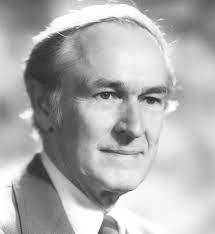Yinger, John Milton

Bio: (1916-2011) American sociologist. John Milton Yinger received his Ph.d. from the University of Wisconsin and taught at Oberlin College. Yinger has made great contributions in several areas: the sociology of religion, the sociology of counterculture, the theory of behavior and personality, the sociology of racial and ethnic relations, and the sociology of housing.
At the beginning of his career, Yinger was primarily involved in the study of religious topics. The most important in this area is his book The Scientific Study of Religion (1970). In the book, Yinger gives a functionalist definition of religion: "Religion is a system of beliefs and practices by means of which a group of people struggle with the ultimate problem of human life" (Yinger, 1970). He cites death, deprivation, suffering, failures, and tragedies as essential problems of human life. Since these problems will always be present in people's lives, religion will never disappear because it survives even in the most secular societies. In this context, Yinger also views ideologies, such as communism or nationalism, as forms of religion.
Religion serves to meet the needs of both individuals and society as a whole, and that is why Yinger considers the usefulness of religious rituals. He believes that even when the ritual is standardized and common, such as, most often, funeral rituals, which confirm the belief in immortality, they do not have to be useful. If religious rituals lead to suffering and injustice, then they can be counterproductive because they prevent the action of a mechanism that will eliminate the causes of dissatisfaction. Religion can have an integrative role in society, but it can also be destructive to society. Religion can, at the same time, have an integrative role at the level of society, but it can be dysfunctional for the individual.
Yinger studied both sects and cults. He believes that many sects and cults have the potential, depending on complex social and historical conditions, to grow into institutionalized churches. In his book Religion and the Struggle for Power (1947), he introduces a six-level classification of religious organizations: cult, sect, established sect, class church/denomination, ecclesia, and universal church. He further divides sects, according to their attitude towards the established social order, into those who accept it, those who avoid it, and those who are hostile to the social order. Yinger believes that both churches and sects can lose their significance, churches because they adapt too much to secular society, and sects because of their exclusivity and radical action.
In the article "Contraculture and Subculture" (1960), Yinger presents one of the first sociological research on "counterculture". Yinger continues his study of the counterculture (he changed the spelling of the concept by changing the prefix form “contra” to “counter”) in his book Countercultures (1982), in which he sees counterculture as a set of norms and values of a group that drastically oppose the dominant norms and values of the society of which that group is a part. He believes that countercultures express three types of protests against the wider society: direct opposition to dominant values; opposing power structures; and opposing established patterns of social exchange.
Yinger also thoroughly studied racial relations in the United States, especially the position of African Americans in the books Racial and Cultural Minorities: An Analysis of Prejudice and Discrimination (1986) and Ethnicity: Source of Strength? Source of Conflict? (1994). Yinger distinguishes between physical and social definitions of race. He believes that the boundaries between physical, that is, biological races are very vague because there are many nuances in phenotypes. Even if there were physically different races, that would not be important for the social sciences because the social definition of race and racial differences is much more important. In Closed Doors, Opportunities Lost: The Continuing Costs of Housing Discrimination (1995) Yinger describes how renters, local governments, tenants' associations, and insurance companies discriminate systematically against African Americans, thereby limiting the ability of this population to settle in neighborhoods with better housing conditions.
Main works
Religion and the Struggle for Power (1946);
Religion, Society and the Individual (1957);
„Contraculture and Subculture”, in American Sociological Review (1960);
Toward A Field Theory of Behavior: Personality and Social Structure (1965);
The Scientific Study of Religion 1970);
Countercultures: The Promise and Peril of a World Turned Upside Down (1982);
Racial and Cultural Minorities: An Analysis of Prejudice and Discrimination (1986);
Ethnicity: Source of Strength? Source of Conflict? (1994);
Closed Doors, Opportunities Lost: The Continuing Costs of Housing Discrimination (1995);
Discrimination in Metropolitan Housing Markets (2002).

